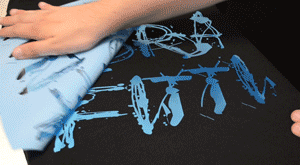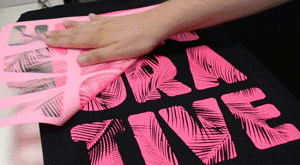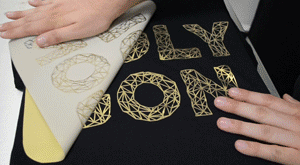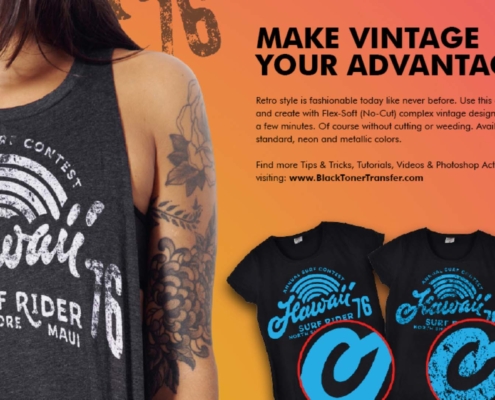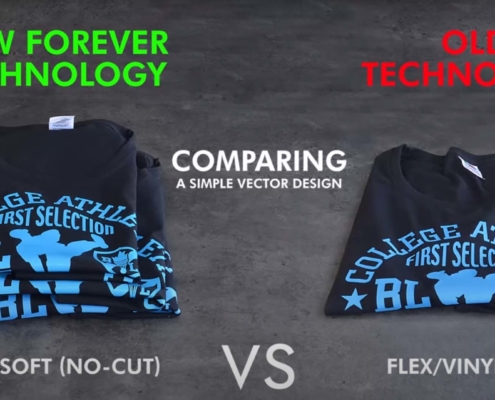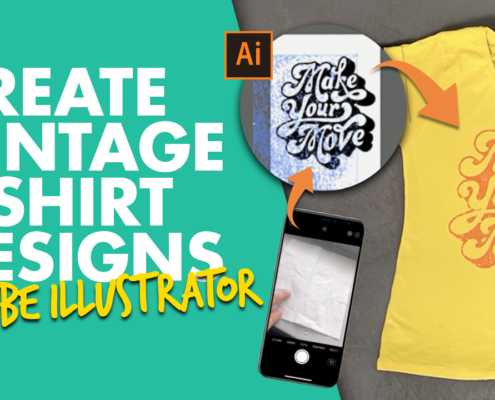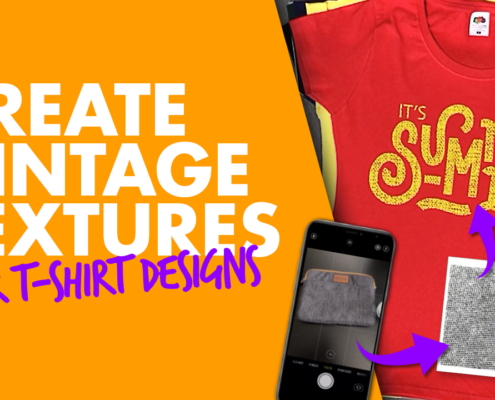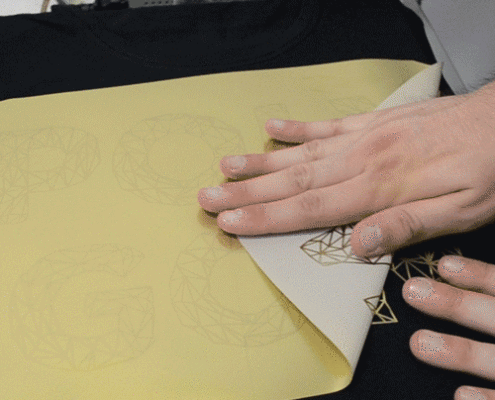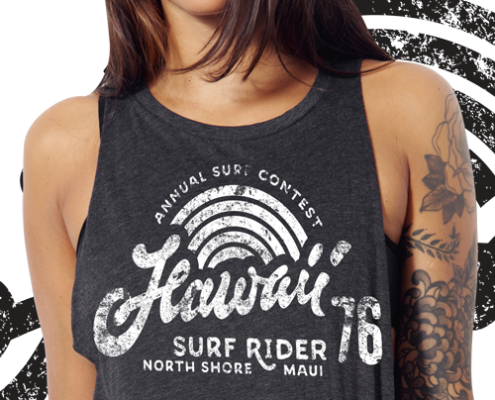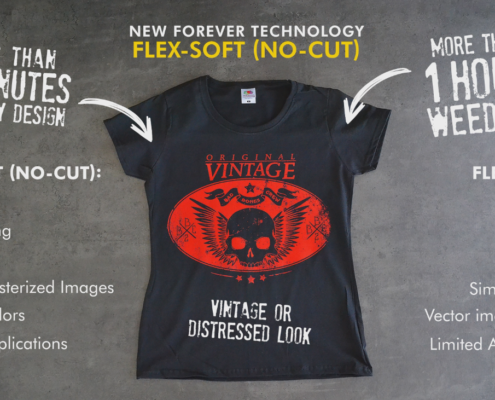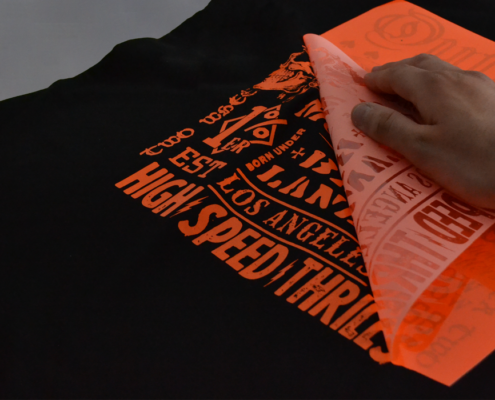Flex-Soft (No-Cut) – Print Complex Fonts
Stop limiting yourself to simple font styles.
Why use standard and simple fonts such as; Arial, Helvetica or Times New Roman, when you can print more complex fonts with Flex-Soft (No-Cut). Printing complex font styles with Flex-Soft (No-Cut) is easy and surprisingly fast process. Unlike Flex/Vinyl printing, where designs need to be plotted and weeded before being pressed to the garment, with Flex-Soft (No-Cut), designs are cut and weeded as the transfer is being prepared. No extra time or processes are required. Hence the name “(No-Cut)” – No Cutting and No Weeding is required.
The Flex-Soft (No-Cut) Font Styles video explores this process, by printing the most complex typographical fonts we could find. Watch how each font style is pressed to the t-shirt really fast and with ease.
- Equipment Required:
– Cheap Laser Printer (Canon LP6020/30)
– Simple Heat Press (Insta 201)
– Flex-Soft (No-Cut) transfer media
– T-Shirt
NOTE: Preheat your Heat Press before use! Always keep the heat press in its closed position. This is to keep both the top and bottom plates of your press, at optimal transferring tempertures.
Heat Transfer Press:
- Cotton: 135-155°C (275-310°F) / 30 sec. / 3-4 bar (43.5-58 psi)
- Polyester: 135°C (275°F) / 30 sec. / 3 bar (40 psi)
- Polypropylene: 100°C (212°F) / 20 sec. / 2 bar (29 psi)
- Blend Fabric: 130-160°C (266-320°F) / 30 sec. / 3-4 bar (43.5-58 psi)
- Paper/Carton: 100°C (212°F) / 15 sec. / 1-2 bar (14.5-29 psi)
- Book Cover: 110°C (230°F) / 15 sec. / 1-2 bar (14.5-29 psi)
Fixing & Finishing (For Improved Washability & a Matt Finish):
- Cotton: 135-155°C (275-310°F) / 30 sec. / 3-4 bar (43.5-58 psi)
- Polyester: 135°C (275°F) / 30 sec. / 3 bar (40 psi)
Note: Different CMYK printer manufacturers use different types of Toners. The settings above are only reference values. Finding out the optimal temperature and time requires some experimentation.
A-Foil & B-Paper Process:
- Print your design mirrored onto the Flex-Soft (No-Cut) A-Foil.
- Place the A-Foil directly on top of the lower plate (printed side showing up).
- Cut around the A-foil so it is smaller than the B-Paper LowTemp.
- Place the B-Paper LowTemp (coated side showing down) on top of the A-Foil.
- Place a Sheet of Matt Finishing Economy (Silicone Paper) over the A-Foil & B-Paper LowTemp.
- Press at 135-145°C (266°F-293°F) for 90 sec (A4) or 120 sec (A3). using 2-3 bar (29-43.5 psi) pressure.
- Separate the B-Paper LowTemp from the A-Foil by peeling diagonally, in a low & smooth flowing motion.
- Cut around your design to remove the unwanted coating frame.
Transfer Application Process:
- Place your Dark Garment (T-Shirt) on the Heat Press.
- Optional: Tape the corners of the A-Foil with Heat Resistant Tape to fix the transfer.
- Position the A-Foil design on the t-shirt.
- Cover with a sheet of Matt finish Economy Paper.
- Press using your Dark Garment Settings (Cotton, Polyester, etc.).
- Remove the A-Foil after it is absolutely cold.
- Optional: For improved Washability and a Matt Finish, cover with Matt Finish Economy (Silicone Paper) & press once more, using your Dark Garment ‘Finishing Settings’.
Watch the whole process in the video above.
Font Styles
GRAFFITI
Graffiti fonts are taking over the world of typography because of their unique and urban vibe. With their usually vivid and embellished colors and outlines, they’re perfect for catching the attention of viewers, readers, and spectators.
DECORATIVE
The combination of flowers and text to produce elegant floral typography layouts has become a very popular advertising trend. These designs merge botanical photographs or illustrations with bold typography compositions.
POLYGON
The affectionately called “poly shapes” are popping up on websites, posters and in printed projects. Poly shapes add that extra bit of visual interest because they are the commonly used rectangles and circles that appear in most design projects.

